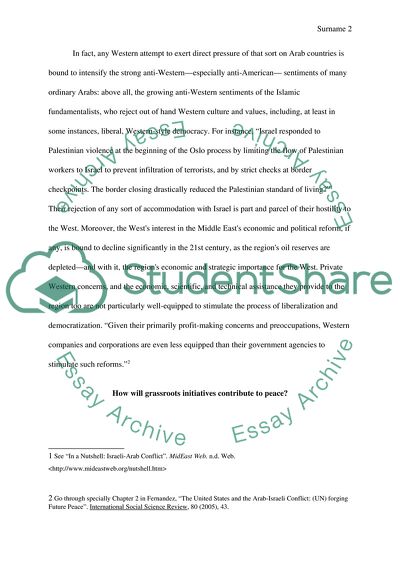Cite this document
(Arab-Israel Conflict: American Investment in People-People Programs Term Paper, n.d.)
Arab-Israel Conflict: American Investment in People-People Programs Term Paper. Retrieved from https://studentshare.org/politics/1728321-israel-arab-conflict-why-doesnt-america-invest-more-in-people-to-people-programs-and-grassroots-initiatives-designed-to-cultivate-peace-from-the-bottom-up
Arab-Israel Conflict: American Investment in People-People Programs Term Paper. Retrieved from https://studentshare.org/politics/1728321-israel-arab-conflict-why-doesnt-america-invest-more-in-people-to-people-programs-and-grassroots-initiatives-designed-to-cultivate-peace-from-the-bottom-up
(Arab-Israel Conflict: American Investment in People-People Programs Term Paper)
Arab-Israel Conflict: American Investment in People-People Programs Term Paper. https://studentshare.org/politics/1728321-israel-arab-conflict-why-doesnt-america-invest-more-in-people-to-people-programs-and-grassroots-initiatives-designed-to-cultivate-peace-from-the-bottom-up.
Arab-Israel Conflict: American Investment in People-People Programs Term Paper. https://studentshare.org/politics/1728321-israel-arab-conflict-why-doesnt-america-invest-more-in-people-to-people-programs-and-grassroots-initiatives-designed-to-cultivate-peace-from-the-bottom-up.
“Arab-Israel Conflict: American Investment in People-People Programs Term Paper”, n.d. https://studentshare.org/politics/1728321-israel-arab-conflict-why-doesnt-america-invest-more-in-people-to-people-programs-and-grassroots-initiatives-designed-to-cultivate-peace-from-the-bottom-up.


